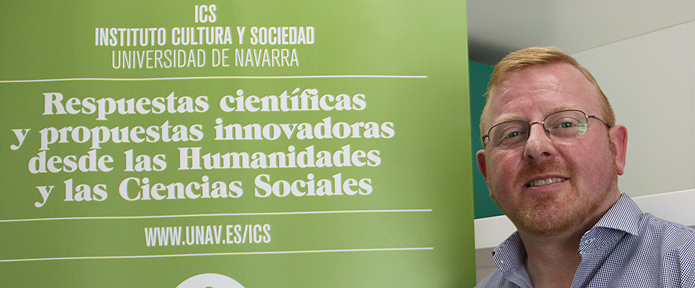"Palliative care should be accessible regardless of patients’ sociocultural status or where they live"
An Irish researcher highlighted how philanthropy has helped develop this medical discipline in his country at ICS of the University of Navarra

"Palliative care should be accessible regardless of patients’ sociocultural status or where they live. It is a key issue for social justice and inclusiveness," or so argued Michael Connolly, Professor of Nursing at University College Dublín, at the University of Navarra. The expert participated in a series of talks organized by the ATLANTES program within the Institute for Culture and Society (ICS) of the University of Navarra, the School of Medicine and Navarra Palliative Care Society (Palian).
In this sense, the specialist warned that there are still inequalities in access to these services: "People living in a disadvantaged socioeconomic environment and with low levels of education are less likely to seek such care because they do not understand it”.
Speaking at the University, Professor Connolly shared some positive experiences in his country, Ireland. Among them, he highlighted the importance of philanthropy for the development of this medical discipline. "The state finances palliative care services, but we come by many resources thanks to the generosity of citizens who make voluntary financial contributions", he noted.
Palliative Care: A medical specialty in IrelandHe explained that Ireland is a leading country in palliative care with an exportable model to the rest of the European Union. First, he emphasized that palliative care constitutes its own specialty within medicine and that teams are multidisciplinary. In addition, in 2010 a National Clinical Program was established that has developed performance criteria and basic rules for professionals in palliative care programs. "Thanks to this,” he added, “professionals are afforded many tools for work, study and evaluation".
Michael Connolly is a professor at University College Dublin and focuses his research on education, skills development and ethics in palliative care and at the end of life.
He is currently conducting a project— with Dr. Karen Ryan, from the St Francis Hospice and the Mater Hospital (USA)— that aims to evaluate and compare the knowledge, skills, attitudes and behavior of doctors working in palliative care and related fields.
Michael Connolly gave his talk as part of a series on “Palliative Care on Three Continents,” organized by the ATLANTES program, the School of Medicine at the University of Navarra and the Navarra Palliative Care Society (Palian). His talk was held at the ICS and at the Navarra College of Physicians. His talked focused on “EUROPE: Dublin, Ireland as home to PC in Ireland and the world".
